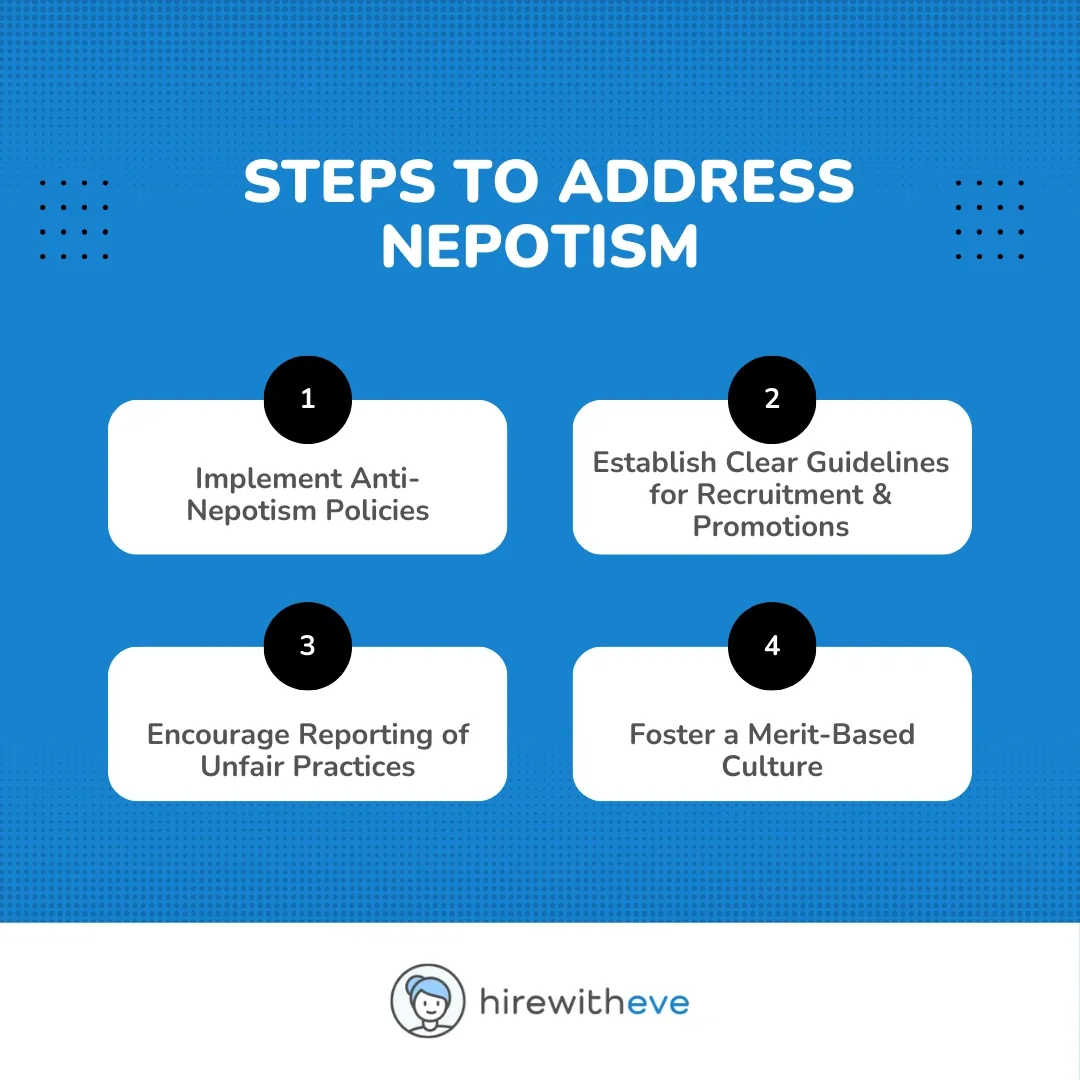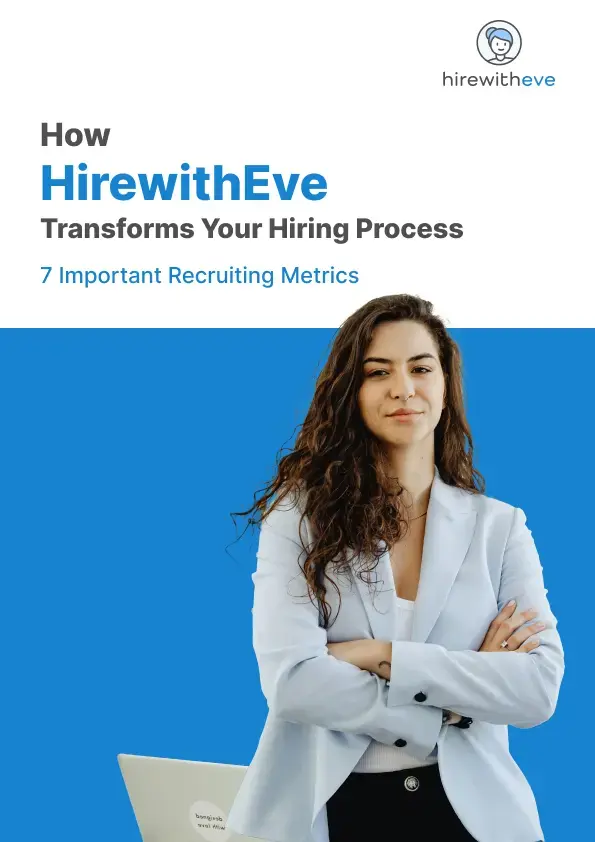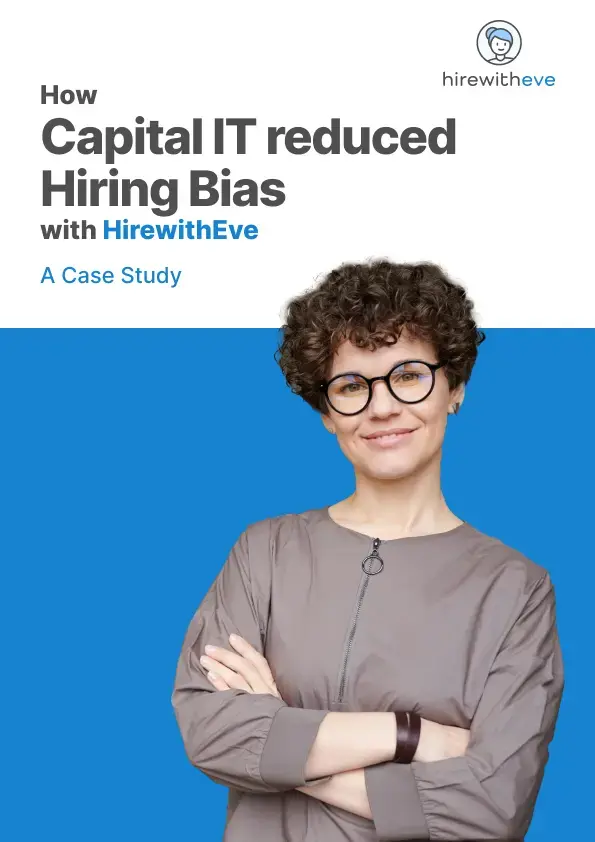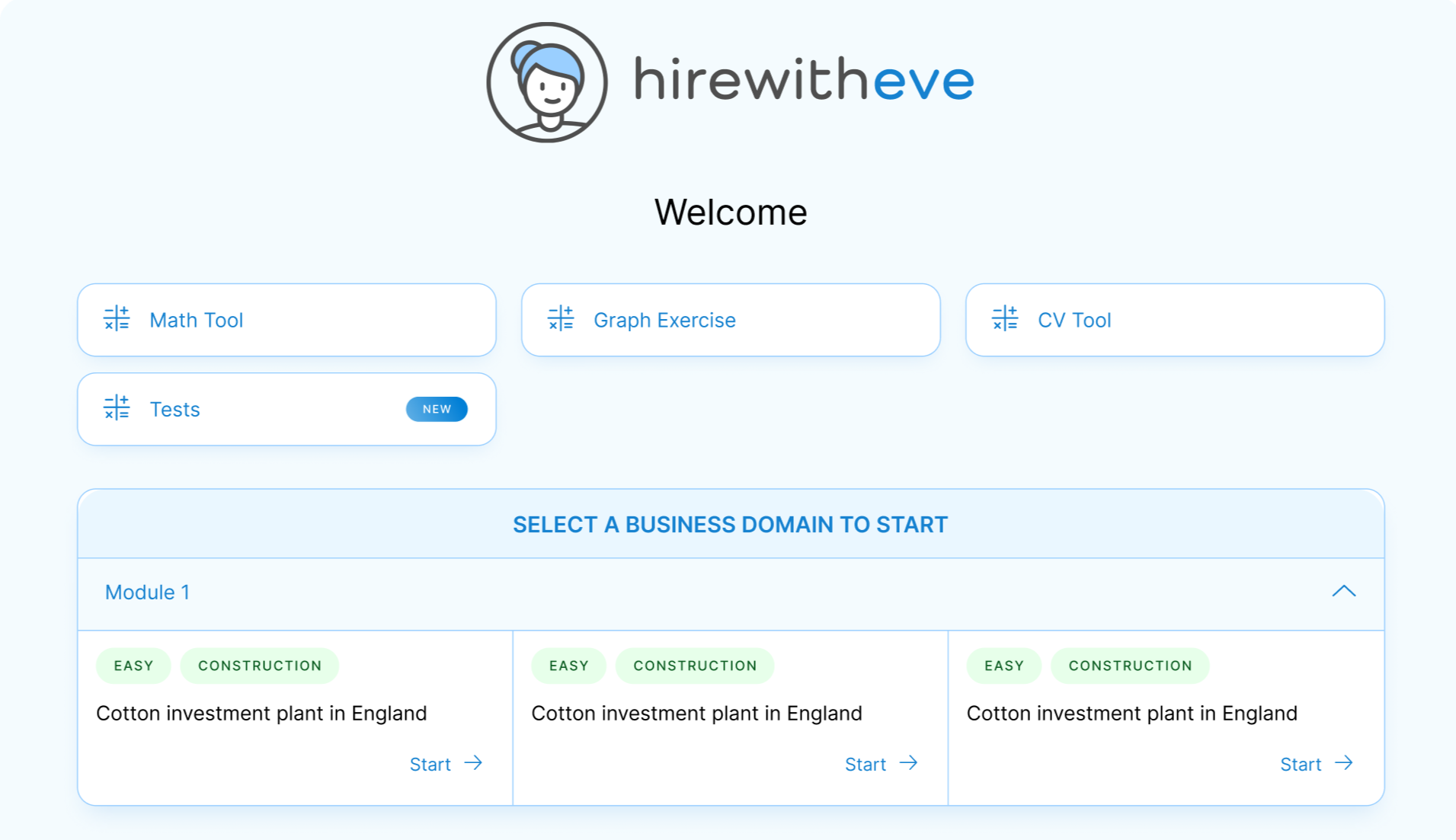Is Nepotism in the Workplace Illegal?

Nepotism, the practice of favoring family members or close relatives in employment decisions, is a concept that has been present in many workplaces for generations. As businesses strive to create fair and inclusive work environments, the question arises: is nepotism illegal in the workplace? Understanding the legalities and implications of nepotism is crucial for talent acquisition specialists and HR managers, who are tasked with ensuring equity and compliance in the hiring process.
While some argue that nepotism can foster trust and loyalty within a company, others believe it undermines the merit-based systems necessary for a thriving workplace.
This blog will explore whether nepotism is illegal in the workplace, examine its impact on organizational culture, and guide how HR professionals can effectively address nepotism-related issues.
Table of contents
Defining Nepotism in the Workplace
Nepotism in the workplace occurs when an individual in a position of power gives preferential treatment to family members or close associates, often leading to hiring, promotions, or special assignments without considering merit or qualifications. This practice can manifest in various forms, such as hiring a relative without a formal recruitment process or promoting a family member over a more qualified candidate.
While the practice of nepotism has existed for centuries, its presence in modern organizations raises ethical concerns. For HR professionals, the challenge lies in balancing familial ties with the need for an equitable and transparent workplace. But the key question remains: is nepotism illegal in the workplace?
The Legal Landscape: Is Nepotism Illegal in the Workplace?
The legality of nepotism in the workplace depends on the jurisdiction and the specific context in which it occurs. In most cases, nepotism is not outright illegal, but it can lead to legal challenges if it results in discrimination or conflicts with established workplace policies. For example, Title VII of the Civil Rights Act of 1964 prohibits discrimination based on race, gender, religion, or national origin. If nepotism indirectly leads to discriminatory practices — such as consistently promoting family members of a particular race or gender — it could result in legal action.
However, there is no federal law in the United States that explicitly prohibits nepotism in private companies. Certain industries, particularly in government and public sectors, have more stringent rules. For instance, federal agencies are prohibited from hiring relatives under the Anti-Nepotism Statute (5 U.S.C. § 3110), which was enacted to prevent the abuse of power in public employment.
At the corporate level, many companies have anti-nepotism policies to ensure that family ties do not unduly influence hiring decisions. These policies often require the disclosure of relationships and set boundaries on hiring and promotion processes involving family members. But even in the absence of such policies, nepotism itself is not illegal in the workplace unless it conflicts with other legal frameworks.
In short, the answer to whether nepotism is illegal in the workplace is not a simple yes or no. HR managers and talent acquisition specialists must stay informed of local labor laws and company policies to address any concerns around nepotism effectively.
Impacts of Nepotism on Workplace Culture
While nepotism may not always be illegal in the workplace, its effects on company culture can be detrimental. Favoritism towards family members often leads to a toxic work environment, breeding resentment among employees who feel overlooked for opportunities. This type of bias erodes trust in leadership and diminishes overall employee morale.
Nepotism in the workplace can also affect team dynamics and productivity. When employees believe that promotions or key roles are being handed out based on familial ties rather than merit, they may become disengaged and less motivated to excel. In extreme cases, the presence of nepotism can cause high turnover rates, with talented employees leaving the organization in search of more equitable workplaces.
For companies committed to promoting diversity, equity, and inclusion (DEI), nepotism can undermine those efforts. Nepotism and DEI initiatives are often at odds, as nepotism inherently favors a small, connected group at the expense of a broader, merit-based selection process. HR departments should be vigilant in ensuring that nepotism does not impede efforts to foster an inclusive and diverse workforce.
The Role of HR in Addressing Nepotism
While nepotism may not be illegal in the workplace, it is the responsibility of HR professionals to mitigate its effects and ensure a fair and transparent work environment.
HR managers and talent acquisition specialists can take several steps to address nepotism, even if it is not explicitly prohibited by law:

Implement Anti-Nepotism Policies: Many organizations choose to adopt formal policies that define acceptable behaviors regarding family and personal relationships in the workplace. These policies should outline the consequences of nepotism and promote fairness in hiring and promotions.
Establish Clear Guidelines for Recruitment and Promotions: HR professionals can prevent nepotism by ensuring that all hiring and promotion decisions are based on objective criteria, such as qualifications, experience, and performance. A structured, transparent recruitment process can help reduce the risk of favoritism.
Encourage Reporting of Unfair Practices: Employees should feel empowered to report instances of nepotism or favoritism without fear of retaliation. A clear reporting process and regular audits can help identify and address issues related to nepotism in the workplace.
Foster a Merit-Based Culture: By promoting a culture that values merit, performance, and qualifications, HR managers can minimize the impact of nepotism. Recognition and reward programs based on objective achievements can reinforce the importance of fairness in the workplace.
Nepotism may not always be illegal in the workplace, but HR professionals play a critical role in minimizing its effects and creating an equitable environment for all employees.
Conclusion
In conclusion, while nepotism is not always illegal in the workplace, it presents significant ethical and cultural challenges for organizations. The lack of clear legal prohibitions in many jurisdictions means that HR professionals and talent acquisition specialists must proactively address nepotism to maintain a fair and inclusive workplace. Establishing clear policies, promoting merit-based practices, and fostering an open reporting culture are essential steps in preventing nepotism from negatively affecting company culture.
As businesses continue to evolve and prioritize diversity and equity, HR managers must remain vigilant in identifying and addressing nepotism to ensure that all employees are given equal opportunities to succeed based on their skills and qualifications. Understanding the question of whether nepotism is illegal in the workplace is key to navigating this complex issue and maintaining a healthy, productive organizational environment.
Target Your Talent
Unlock tailored solutions for your recruitment and hiring needs with Eve Platform's extensive case study library.
Subscribe now to enhance your HR expertise and excel in your role.
Free Resources

Transforming Hiring: 7 Key Recruiting Metrics
Enhancing recruitment processes with data-driven insights for better hiring outcomes.

Reducing Hiring Bias with Hirewitheve.
Utilizing Hirewitheve to combat bias and streamline recruitment processes effectively.

Hiring Detail-Oriented Candidates
HirewithEve enhances hiring by accurately assessing candidate's attention to detail-oriented.








